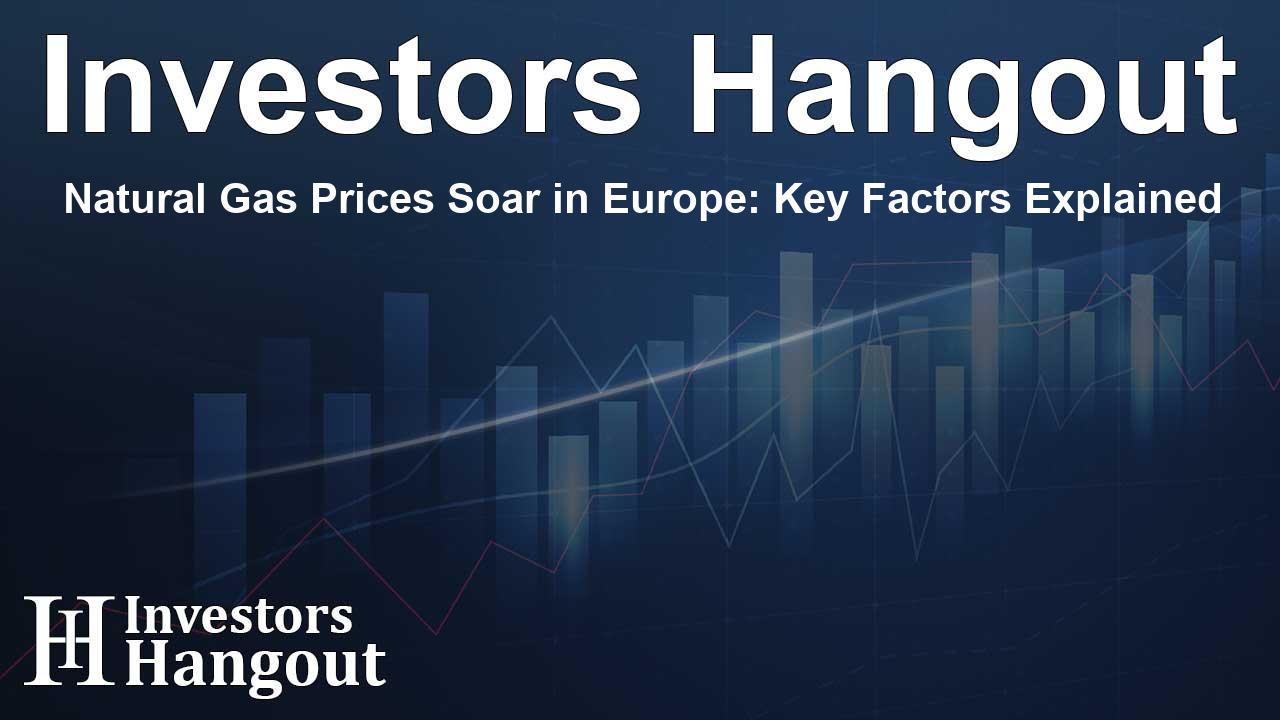Natural Gas Prices Soar in Europe: Key Factors Explained

European Natural Gas Prices Surge
Natural gas prices in Europe have recently surged by over 3%, with the Dutch TTF contract, a key industry benchmark, reaching 50.30 euros per megawatt-hour. This significant rise has sparked much discussion and analysis, focusing on the underlying factors contributing to such a dramatic change in pricing.
Key Factors Behind the Price Increase
The spike in gas prices can largely be attributed to a disruption at the Freeport LNG facility in the U.S. This facility plays a crucial role in the global liquefied natural gas supply, and any disruptions can ripple through the market, affecting prices significantly. Moreover, recent announcements from Germany about possible subsidies for storage refills during the upcoming summer months have further influenced market expectations. By ensuring adequate storage levels, Germany aims to stabilize gas availability when demand peaks.
Impact of Low Storage Levels
Currently, gas storage levels across the European Union have fallen below the 60% mark, raising alarms across the region. With lower than expected storage levels, there has been an increased demand for liquefied natural gas (LNG) as countries seek to fill their reserves. Notably, pricing dynamics indicate that the cost of gas during the summer months is significantly higher compared to the projections for the upcoming winter season.
Risks of Supply Shortages
This troubling pricing trend poses a substantial risk to the refilling of gas storage sites, raising concerns about potential shortages across the continent. If these prices remain high, they could hinder the ability of various nations to gather sufficient reserves for the colder months, which could ultimately lead to greater market instability.
Looking Ahead
As Europe navigates these challenges, governments and energy companies are closely monitoring the situation. Long-term strategies may be required to ensure that countries can effectively manage their gas supplies without succumbing to the pressures of fluctuating prices. Stakeholders are urged to prepare for possible volatility in the gas markets as summer approaches, emphasizing the need for prudent energy policies and consumer awareness.
Frequently Asked Questions
What is causing the recent surge in natural gas prices in Europe?
The surge is primarily triggered by a disruption at the Freeport LNG facility in the U.S. and low gas storage levels in the European Union.
How do supply disruptions affect gas prices?
Supply disruptions lead to reduced availability, which in turn increases demand, subsequently pushing prices higher in the market.
What are Germany's plans regarding gas storage?
Germany is considering subsidies to assist with gas storage refills during the summer, aiming to reach desired storage levels for better supply management.
What impact could these prices have on European customers?
Higher gas prices may lead to increased energy costs for consumers and businesses, potentially affecting the overall economy.
How do current prices compare to winter projections?
Currently, summer gas prices are higher than the projected costs for the winter, raising concerns about storage and supply adequacy.
About The Author
Contact Ryan Hughes privately here. Or send an email with ATTN: Ryan Hughes as the subject to contact@investorshangout.com.
About Investors Hangout
Investors Hangout is a leading online stock forum for financial discussion and learning, offering a wide range of free tools and resources. It draws in traders of all levels, who exchange market knowledge, investigate trading tactics, and keep an eye on industry developments in real time. Featuring financial articles, stock message boards, quotes, charts, company profiles, and live news updates. Through cooperative learning and a wealth of informational resources, it helps users from novices creating their first portfolios to experts honing their techniques. Join Investors Hangout today: https://investorshangout.com/
The content of this article is based on factual, publicly available information and does not represent legal, financial, or investment advice. Investors Hangout does not offer financial advice, and the author is not a licensed financial advisor. Consult a qualified advisor before making any financial or investment decisions based on this article. This article should not be considered advice to purchase, sell, or hold any securities or other investments. If any of the material provided here is inaccurate, please contact us for corrections.
